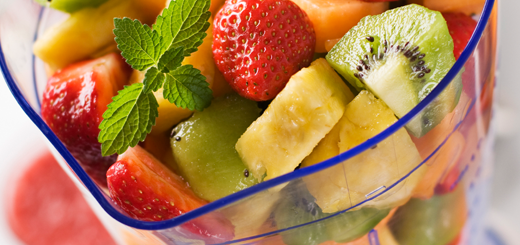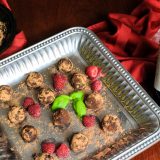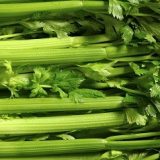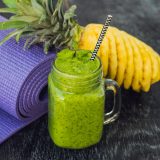A Peach a Day Keeps the Doctor Away
 Now I know that the saying is actually “an apple” but let’s look at the beneficial qualities of peaches and other similar stone fruits, including nectarines, plums, cherries, apricots and their associated hybrids and why they keep us away from the doctor’s office.
Now I know that the saying is actually “an apple” but let’s look at the beneficial qualities of peaches and other similar stone fruits, including nectarines, plums, cherries, apricots and their associated hybrids and why they keep us away from the doctor’s office.
Summertime isn’t typically associated with sickness, but is it because the germs are fewer, we spend more time outside or we consume foods that are immune supporting?
I love this time of the year with all the juicy, sweet stone fruits. Their aromas waft through the air as I enter into their section at Sigona’s Farmers Market, beckoning me to pick them and savor their incredible flavors. One of the ways I choose my produce is by a fruit’s smell. But more about choosing ripe stone fruit later in the article. Eating these fruits also requires a bit of a carefree attitude as the juice just drips as you bite into them.
All these fruits are classified as stone fruit due to the hard pit in the center. Also called drupes (pretty strange name), they have a single seed that is encased in a stony, hard shell. The hard pit protects the seed and allows it to be scattered as droppings by our avian friends. These fruits are all in the genus Prunus and family Rosaceae or rose family. These fruits are at their peak of ripeness between May and September (or October if we’re lucky). If you buy these fruits in the winter, they are typically from South America and will have the transit issues that were discussed in the last article (http://www.bettereatingcoach.com/62212-eating-with-the-seasons.html).
All of these fruits are low in calories due to their high water content. The high-water composition (87% in peaches) helps suppress hunger. Anyone trying to lose weight may want to grab these as a great snack. Furthermore, your body actually uses more calories digesting the fruit than the fruit has so it is a negative calorie gain. In addition, all these fruits have high levels of vitamins A and C. These vitamins are beneficial for a variety of reasons, including immunity, heart health, joint support and eye health. These fruits also enhance our digestive system, as they all are good sources of dietary fiber. Did you know that plums act like their dried counterparts, prunes, against constipation?
Each of these fruits has high levels of potassium (and of course, no salt) so they’re good for anyone on a low-salt diet or with cardiac issues. Potassium is essential for heart health, kidney function and digestion. Most of these fruits also contain iron, which is necessary for red blood cell formation, nervous system function and immune health to name a few. As vitamin C enhances absorption of iron, these fruits are chalk-full of nutrients that work together to enhance our well-being.
Other important components of these fruits are antioxidants such as beta carotene (which creates the deep colorful skins), lutein and lycopene (important for our eyes). These antioxidants work on cleaning up the toxic compounds in our bodies as well as the by-products of our metabolism. They are linked to cancer prevention and are extremely important for optimal body functioning.
So how do you pick the best stone fruit out there? The fruit should have a bit of give when you press the skin—not too hard and not too soft, but just right. After pressing the skin, I always pick up the fruit and smell it to see if it has that wonderful aroma I spoke about earlier. If it doesn’t, find another piece that does. Or you can put it out on the counter for a couple of days to ripen and then savor.
Be aware that conventionally grown stone fruits typically have a lot of pesticides. If you can buy these fruits organically grown, you will be better off. If not, just rinsing in water isn’t enough to remove the pesticides. Instead, try filling your sink or a large bowl with cold water. Add 4 T salt and the juice of half a fresh lemon. Soak fruits and veggies for 5-10 min. (for leafy greens 2-3 min.; for berries 1-2 min). Rinse well and enjoy. For another nontoxic and inexpensive cleaning method, combine 1 T lemon juice, 2 T distilled white vinegar and 1 cup water in a spray bottle. Spray the fruit or vegetable, wipe and then enjoy!
Savor these wonderful fruits because the season goes by quickly. For a delicious blueberry and peach crisp recipe, go to my website at http://www.bettereatingcoach.com/recipe-summer-2011.html.












